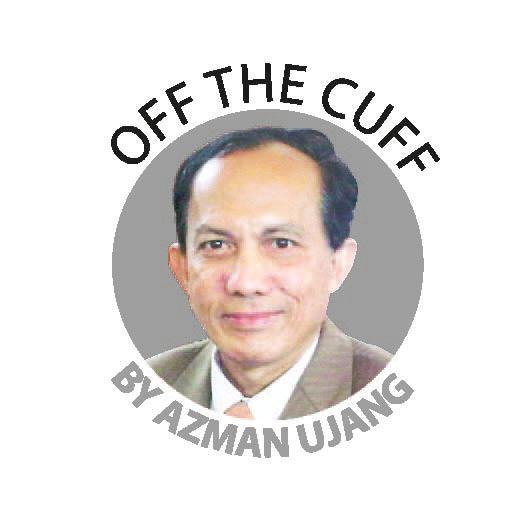ATTEMPTS by the federal government to unlock the value of land in the Malay enclave of Kampung Baru in Kuala Lumpur over the past decades have so far been unsuccessful due to a myriad of problems related to multiple land ownership and many other issues.
While other chunks of real estate surrounding it have seen a frenetic pace of development bringing unimaginable profits and wealth to the land owners, Kampung Baru remains stagnant.
Smack right in the heart of Kuala Lumpur, one of the fastest growing cities in terms of property development, Kampung Baru stands out like a sore thumb, an eyesore and a semi-slum.
This is indeed both a paradox and an enigma given the fact that the 89ha village classified as Malay Agricultural Settlement (MAS) by the British administration way back in 1900, is arguably the most valuable piece of land owned by the Malays on planet Earth.
For example, the Petronas Twin Towers, one of the world’s most iconic skyscrapers, sits hardly a kilometre away. It was developed on land previously used as a racecourse for horses.
But it was only in 1965 that land ownership titles were issued at Kampung Baru and since then four generations of families have inherited the property.
The formation of the Kampung Baru Corporation in 2012 raised so much hope among landowners for its future redevelopment and to create new waves of wealth-creation for the Malays in line with the nation’s affirmative action for the community.
Because of its location, Kampung Baru is indeed a gold mine but it has been by-passed by development and modernisation in the nation’s capital city.
When the Act to form the corporation was tabled in Parliament in 2011, the stand taken by the then government was that the redevelopment of Kampung Baru would only be carried out with the agreement of the landowners and their inheritors and that the government would not acquire the land.
The corporation, better known as PKB, has come out with several initiatives to implement its mandate but as admitted by its chief executive officer Zulkarnain Hassan, the tasks are complicated or easier said than done.
Since the new Pakatan Harapan government took over in Putrajaya, there have been plans announced for a more aggressive development in the area, leading to a series of meetings with landowners.
Basically they agreed to allow their parcels of land to be developed on the basis of market value for their property. No “outsiders” could develop the land without their written consent.
To get a sense of the fractured nature of land ownership here, Zulkarnain cited one case where just one plot of land is owned by 150 people.
In an interview with Wilayah Ku, the weekly tabloid newspaper of the Federal Territory Foundation, he said if the redevelopment would proceed via a new method of land acquisition, it would cost the government about RM15 billion.
This involves acquiring 61ha out of the total 89ha based on the value of between RM1,300 and RM1,600 psf. The rest is classified as land reserve for amenities like sports fields, halls and schools.
It would cost even less if the valuation is set at RM1,000 psf, which is even higher than the “wiling buyer willing seller” concept of RM650 psf.
According to Zulkarnain, there are owners who are advertising via the mudah.com website to sell their land at as low as RM300 psf.
“But the problem is, if we were to acquire the land, is there a guarantee that the government can take over 100% of the property given the fact there are landowners who cannot be traced and problems of unresolved inheritance?” he said.
The focus of PKB right now is on resolving ownership issues on 427 plots of land or over 52% of the total area of Kampung Baru.
In my view, this is a good move to kick-start the long delayed redevelopment. It is futile and unrealistic to wait for most of the nagging issues to be settled before development can kick in.
If the 52% portion could be redeveloped, it’s a huge enough portion to unlock this gold mine that so many original landowners have not seen money in their pockets because they have passed on.
And the valuation of the land based on market value can only be implemented and the return on investment ensured if amendments are made to the laws applicable to Kampung Baru. This pertains to the clause that only the Malays can own or buy property on the land.
The highrise buildings like condominiums and other blocks to be developed on the land in future would see limited market demand if only open to the Malays.
The Malayness of Kampung Baru can still be largely preserved or kept intact as not all of it can be developed.
Kuala Lumpur is touted as a city of diversity by the Kuala Lumpur City Hall and modernising Kampung Baru won’t impair even a little bit of this image.
To Kampung Baru folks, let’s get real and be ready for change and you will be the first to benefit from it.
Comments: letters@thesundaily.com











